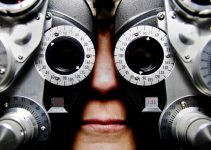weightlessness
Outside the gravitational pulls of the earth, all living organisms experience weightlessness. Feeling no effects of gravity and being weightless may seem like a fun aspect of living in space. But the truth is weightlessness for a prolonged duration can have serious deleterious effects on the human body. These harmful effects include loss of muscle mass and osteoporosis. Living in space for as little as 10 days can result in a decrease of 20% in muscle mass.

Astronaut
These are simply the known effects of low levels of gravity, also known as microgravity. The low levels of gravity are the reason behind the increase in height of astronauts who spend long periods in space.
The Pros and Cons of Space Travel
Becoming taller may sound like a positive change, however, it comes with a price. Increased height was associated with back pain among astronauts, according to a recent study.
Since space exploration began astronauts spent longer durations in space, especially after the launch of the International Space Station.
Research on six NASA astronauts
In order to find the etiology of back pain, a new study was initiated. The study did MRI scans on six NASA astronauts. Astronauts got an MRI scan before and after their space travel. The MRI scans revealed a growth in height by a few inches in all six astronauts; however, there was a significant loss in muscle mass, which didn’t recover even after their return to Earth.
According to the researchers, the increase in height is simply the result of low gravity. The spine is no longer compressed without the body’s weight being dragged down by the effects of gravity. The increase in height quickly returns to normal when the astronauts return back to earth. However, the back pain is not resolved so easily even after the astronauts return from space.
Dr. Douglas Chang of the University of California San Diego, lead scientist of the research along with other researchers discovered a significant loss in muscle mass around the spine. The vertebrae require the support of the muscles around them in order to direct the motion of each individual bone. The muscles support core movement in order to prevent any misalignment of the spine.
The MRI scans taken a month after the astronauts return from space showed a recovery of only two-thirds of the muscle mass. The back pain is most likely caused by the loss of muscle mass and weakened support to the vertebrae. The loss in muscle mass also increased the risks of spinal disc herniation in the astronauts.
“These findings run counter to the current scientific thinking about the effects of microgravity on disc swelling,” said Dr. Chang.
“Further studies will be needed to clarify the effects on disc height, and determine whether they contribute to the increase in body height during space missions, and to the increased risk of herniated discs. However, it’s information like this that could provide helpful information needed to support longer space missions, such as a manned mission to Mars.”
The research and its findings have allowed the development of remedies for back pain and loss in muscle mass. For people who suffer from disc herniation and back pain, the remedy includes core strengthening exercises and physiotherapy. This same therapy can be done by astronauts in space to prevent the loss of muscle mass and subsequent back pain. According to Chang, even yoga can be useful for astronauts to prevent back pain.
References
Astronauts Get Taller In Space But Pay The Price In Ongoing Back Pain
Strange But True: Astronauts Get Taller in Space
Space Makes Astronauts Grow Taller, But It Also Causes Back Problems
FEEDBACK:



